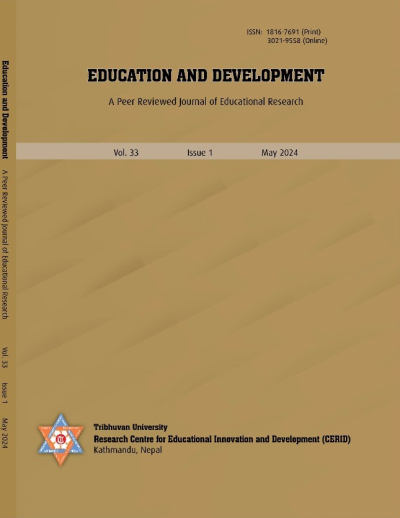Women Empowerment Through Participation in Open Defecation-Free Initiatives: A Qualitative Study
DOI:
https://doi.org/10.3126/ed.v33i1.66591Keywords:
experience, free campaign, obstacle, open defecation, self–empowerment, transformationAbstract
Women empowerment still remains straggling in the context of Nepal. Only 38% of women are able to make decisions in different works (MOHP et al., 2017). This study aims to explore women’s experiences and their self-empowerment through their participation in Open Defecation-free (ODF) campaigns. The central question of this study is what lived experiences of the women who were involved in ODF campaigns are and what this means to their self-empowerment. I used a phenomenological research design and the phenomenon of this study is ‘open defecation-free movement’. The three key dimensions of the theory of empowerment, viz. agency, resources, and achievement underpin this study. The interviews were conducted with three informants selected based on theoretical sampling. The interviews were transcribed into Nepali, codes generated categorized, compared, grouped, and thematized. Three major themes were drawn from the data-women's journeys to self-empowerment, transformation of societal and behavioral dynamics, and obstacles to sustainable women empowerment. The link between women empowerment and societal change is complex and interconnected with each other. Still, our society is ruled by male domination and patriarchal thinking and structure. Therefore, women's self-empowerment and the ability to take challenges through the involvement in other development agendas are going to gain power and shift from masculinity to a transformative society in the future. Nonetheless, women themselves have to take challenges and be empowered with the support of men.
Downloads
Downloads
Published
How to Cite
Issue
Section
License
Copyright (c) 2024 Author

This work is licensed under a Creative Commons Attribution-NonCommercial 4.0 International License.
CC BY-NC 4.0. This license requires that reusers give credit to the creator. It allows reusers to distribute, remix, adapt, and build upon the material in any medium or format, for noncommercial purposes only.




